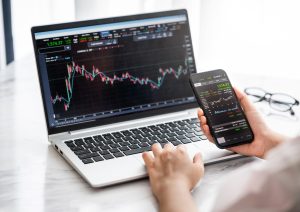Deciphering the Market: Your Guide toward Improved Trading
Ever feel as though the market speaks a language you have not fully acquired? You are not by themselves. From fresh-faced beginners to seasoned experts, many traders struggle with the erratic character of the axim daily. Though entertaining, perhaps, it’s hardly scientific to try to forecast the next viral cat video. Here is where the concept of trading smarter finds application. It’s about appreciating a more informed, deliberate approach and transcending instinct.

Consider it this: would you build a house without a blueprint? Possibly not. Likewise is trading without a well-considered plan. You are basically searching the dark for buried wealth, aimlessly. Trading smarter is creating that plan, knowing the materials—market data—and knowing how best to apply your tools.
One important thing is lifelong learning. Neither your quest of knowledge nor the market sleeps. New approaches start to show. Traditional practices change. Staying still is like trying to win a race from stillness. Study books. Consult credible analysts. Talk about issues with other traders. Every fact is a possible clue in the complex puzzle of the market.
Still another absolutely vital component is management of risk. Imagine boating over a stormy sea without a life jacket. Trading without risk management is just like that. Guard your wealth. Know position sizing. Make stop-loss orders. These are your safety net in an occasionally turbulent world, not simply fancy words. It’s about live to trade another day equipped with knowledge gained instead of confronting a wipeout.
Never underplay the influence of technology. We live in a time when data abound. Advanced analytical instruments enable you to sort through the clutter and spot possible prospects. Technology may be a great friend from charting tools that graphically depict price movements to algorithmic trading systems running lightning-fast deals. It’s like having a supercharged assistant committed to trend identification and numerical crunching.
Still, tech is hardly a magic bullet. It’s a tool, hence the user determines its efficacy just as with any instrument. As they say, garbage in—garbage out. You still should apply critical thinking and grasp the fundamental ideas. Never rely just on any sign or formula. Finish your homework. Find out why a given tool might be indicating a specific movement.
Second most important is emotional discipline. The market may be an emotional rollercoaster, euphoria following a winning trade and gloom following a loss. Letting these feelings control your decisions will lead to disaster. Guiding by your emotional swings, it’s like driving a car blindfolded. Create a trading strategy and follow it, independent of the emotional currents whirling about you. Simple said, maybe, but definitely essential.
Think about starting a trading notebook. Though it sounds traditional, recording your trades together with your feelings and rationale might offer great insights. It’s like keeping a personal trading diary in which you may monitor development, note repeating errors, and improve your techniques. This helps you to grow from your former self and guide future decisions.
See trading smarter as a path of ongoing development rather than as a destination. It’s about training a curious, disciplined, and flexible attitude. It’s about never stopping to consider how you may improve your strategy and acquire a clearer edge in the market. So cut the guessing, welcome the education, and negotiate the markets with more assurance. You will be thanked in your portfolio.



